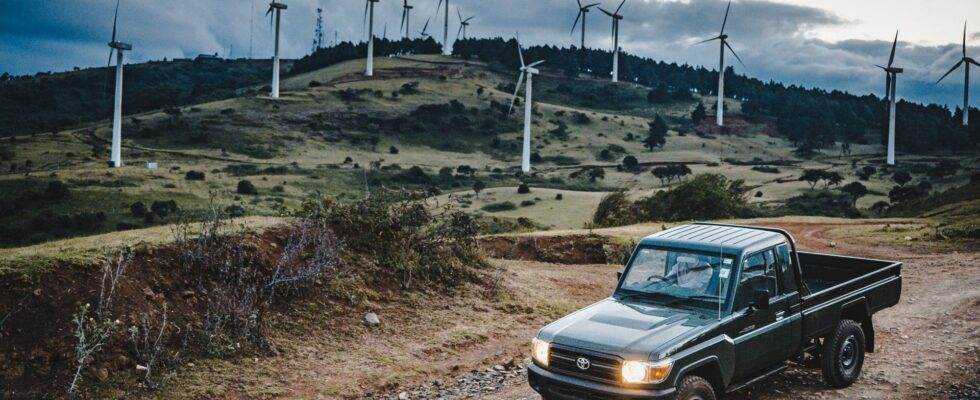Opibus, a Nairobi-based startup, is building an ecosystem to make electric mobility more accessible everyone and not just a select few. Founded in 2017, Opibus used the safari and tourism industry to anchor its business, initially focusing on converting off-road safari and game drive vehicles to electric using its proprietary electric vehicle drivetrain. The Opibus team is very passionate about the electric vehicle conversion business and they see it as the most resource-efficient way of accelerating the transition to electromobility in a less capital intensive manner. There are tens of thousands of old ICE vehicles on the continent that have chassis and bodies in very good condition, making them ideal for conversion.
Starting out with commercial off-road game drive vehicles was a quick win and a great entry point into the market. Several factors made this market ideal for conversions, including:
- Scheduled drives around national parks allowing for optimized, periodic EV charging sessions
- Well-defined routes and ranges of game drives
- Campuses are in remote locations where it is usually expensive to get diesel and spare parts for servicing ICE vehicles on sites
- Synergies between EVs and PV unlock more value for resort owners from existing or future assets, such as solar microgrids for EV charging.
- The electric vehicle experience ensures quieter game drives, allowing for closer interactions with animals for guests
Opibus has conversion packages tailored for certain types of vehicles in the game drive and off-road market using battery packs built with prismatic lithium iron phosphate cells. These come in two battery pack sizes, which are the 38 kWh and 58 kWh packs with ranges of up to 90 km and 140 km respectively, depending on the weight of vehicle, terrain, and driving style.

Opibus is now moving to bring affordable, clean, and efficient mass transit options to Kenya’s public transport sector by electrifying the vehicles servicing the urban commuter network. The majority of vehicles servicing these urban commuter routes are 14- to 51-seater buses, popularly known as Matatus in Kenya. Converting these vehicles to electric can reduce the operating costs for players in the public transport taxi industry by up to 50%, according to Opibus. Electrifying these mass transit vehicles will also reduce downtime, as EVs don’t require as much maintenance as the current ICE fleet.

Kenya has set an ambitious target of having 5% of registered vehicles being electric by 2025. A critical mass of people with knowledge and expertise to design, manufacture, and assemble electric vehicles will be needed to support the entire ecosystem. Opibus is on a mission to play a pivotal role in this area and have grown its team to over 70 people in Nairobi. 40% of the Opibus team are women employed across the organization’s structure including in engineering, operations, and management positions. Opibus is also putting a lot of emphasis on localizing a significant portion of the components going into its vehicles. Some of the vehicles in its current line-up are already incorporating as much as 35% locally sourced components, which will also go a long way in ensuring that replacement parts for the vehicles will be readily available on the local market.
Increasing the adoption of electric vehicles in Kenya will have the biggest impact on the journey to reduce carbon emissions. A 2018 paper by Fiona Raje, et al., cites that 39% of CO2 emissions in Kenya are from the transport sector. Kenya’s electricity grid is already predominantly powered by a mix of renewable energy sources such as wind, geothermal, hydro, and some utility-scale solar, meaning all those electric vehicles will be powered by some very clean electricity. We hope startups such as Opibus will be able to scale very quickly to help lead this transition and ensure Kenya realizes all the potential benefits from the electric vehicle economy.
New CleanTechnica Podcasts
